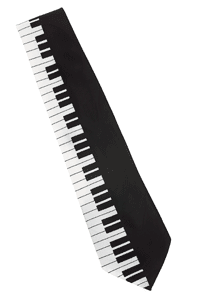
This morning I woke up and began my usual rounds of the design blogs. Of course, there are the year-end round-ups. Brand New does its Best Logos of The Year post. Design Observer has a great review of Reasons To Be Cheerful: The Life and Work of Barney Bubbles, a monograph of a fairly obscure British designer whose work is now getting widespread attention, due in part to a blog entry from early 2007 which apparently led to the monograph itself.
Still, it’s not a design morning for me.
A client once mentioned to me how it seemed a lot of designers were also writers (or at least want to be). Not too surprising, I thought. It’s been said that graphic design and the written word go hand in hand, both being conduits of language and communication. So it’s natural that many designers have an affinity for not just the letterforms but the words the letterforms create. Some designers have such a profound love for the written word that it becomes an overarching theme in the narrative of their work (Linda Zacks comes to mind). Others have taken things even beyond that. With his 2001 book, The Cheese Monkeys: A Novel in Two Semesters, Chip Kidd has done what, for me, would be my piano necktie achievement as a designer/writer. Lets face it. We’re all working on novels. We only keep these blogs because marketing publications say its good for business.

Piano Necktie
As I said, this morning is not a design morning for me. Instead, I want to take a look at poetry. If this were the first day of classes, this would be the moment you calmly gathered your things and made a hasty exit towards the registrar’s office.
First, let me set things up for you. Every morning, I start my day by reading a poem aloud. Usually, it’s whatever poem is on The Writer’s Almanac, since it’s set as my default homepage. This morning, however, my browser had stayed open all night. So after reading a bit on the design blogs and realizing I wasn’t in the mood, I remembered how the other day it had come to my attention that Robert Bringhurst (Yes, that Robert Bringhurst), is also a poet, and a serious one at that. I did a quick google search for his poetry, which led me to a few of his poems. Holy buttbuckets! Bringhurst is a poetry beast. Below is The Beauty of Weapons, a poem Bringhurst wrote about an UZI. A f*cking UZI.
The Beauty of Weapons
by Robert Bringhurst
El-Arish, 1967
A long-armed man can
carry the nine-millimeter
automatic gun slung
backward over the right shoulder.
With the truncated butt
caught in the cocked
elbow, the trigger
falls exactly to hand.
These things I remember,
and the fuel-pump gasket cut
from one of the innumerable
gas masks in the roadside dump.
I bring back manuscript picked
up around incinerated trucks
and notes tacked next
to automatic track controls.
Fruits of the excavation.
This is our archaeology.
A dig in the debris
of a civilization six weeks old.
The paper is crisp and brittle
with the dry rock and the weather.
The Arabic is brittle
with the students’ first exposure
to air-war technology and speed.
Ridiculous to say so, but
the thought occurs,
that Descartes would be pleased:
the calculus is the language
of the latest Palestinian
disputations
in the field of theology.
The satisfying feel
of the fast traverse
on the anti-aircraft guns
is not in the notes.
It lies latent and cool
in the steel, like the intricate
mathematics
incarnate in the radar:
the antennae folded and rolled
like a soldier’s tent,
sweeping the empty
sky and the barren horizon,
the azimuth and the elevation,
sweeping the empty air
into naked abstraction,
leading the guns.
The signal is swirled until it
flies over the lip like
white, weightless
wine from the canteen cup.
Invisibly, the mechanism sings.
It sings. It sings like a six-ton flute:
east, west, always the same
note stuck in the rivetless throat.
And yet, a song as intricate
as any composition by Varese,
and seeming, for the moment, still
more beautiful, because,
to us, more deadly.
Therefore purer, more
private, more familiar,
more readily feared, or desired:
a dark beauty, with a steel sheen,
caught in the cocked
mind’s eye and brought
down with an extension of the hand.
from The Beauty of the Weapons: Selected Poems, 1972-82. Toronto: McClelland and Stewart, 1982. (View book)
It’s remarkably beautiful, yet his choice of words and the way he stacks the consonants against one another capture, not only the brutality of the subject matter, but the very sound the weapon creates. But don’t take my word for it.
Read this assessment of the poem by Canadian poet, David Seymour.



 Posted by tishon
Posted by tishon
You must be logged in to post a comment.